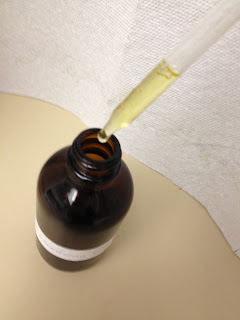He refers to them as "monkey nuts" and prefers that I don't use them to wash his clothes. :) It makes me laugh because, well.....enough said. LOL
So I found a recipe for homemade laundry detergent and have been using that for his clothes. Here's the recipe:
- 1 cup of grated bar soap (any soap you like - we use all the scraps or half used bars laying around the house)
- 1/2 cup of super washing soda
- 1/2 cup of Borax
Mix these all together in a bowl and keep them in a little canister in your laundry room.
For a lightly soiled load - start the water in your washer and sprinkle in 1 tablespoon of the mixture so it has time to dissolve before putting the clothes in. For a heavily soiled load - use 2 tablespoons of the mixture.
This mixture works great and cleans our clothes nicely and leaves a faint scent of whatever soap you used in the mixture.
Soap Nuts are more allergen free. Actually, I don't think you can get more natural than these nuts for washing your clothes. You can order them online through various retailers. Just google "Soap Nuts". I have used the brand "Eco Nuts" (pictured above) They typically come in a box with a little cloth bag. You take 4-5 soap nuts out of the box and put them in the little cloth bag and throw the bag in the washer with your clothes. That's it.
When you pull your clothes out of the washer - pull the little soap nuts bag out and throw it in your next load in the washer. Occasionally, I have forgotten to retrieve the little bag before putting the load in the dryer and consequently the nuts went through a dryer cycle. Doesn't hurt them one bit. Just pull em out and throw them in the washer with the next load. They are very forgiving.
You change out the soap nuts after about 10 washes - they start getting really brittle and shrived up. Put the used up nuts in your compost or garbage and put in 4-5 new soap nuts in the bag and you are ready to go!
The outside layer of the soap nuts is a natural surfactant so it works just like soap, you just wont see any suds (which you really don't want in your washing machine anyway). I personally think they do a great job of cleaning - they just don't leave a fragrance behind. So your clothes smell like...you guessed it.....clothes! Just not dirty clothes.
If you're used to your clothes smelling like a flower garden after laundering - using soap nuts may take some getting used to. If you can't live without your clothes smelling like some kind of fragrance, you might try the recipe I listed earlier for making the homemade laundry detergent.
I've read several accounts where people have switched to using soap nuts with great results because they are allergic to the fragrances and other ingredients in the laundry detergents you find at your local grocery. My daughter has sensitive skin so I do like using these to launder her clothes. I also like to use them on my clothes too - especially anything delicate. We've been using the soap nuts for at least a year with good results. I've been using the homemade laundry detergent for a few months - also with good results.
Hope these tips are helpful to you and your family!









